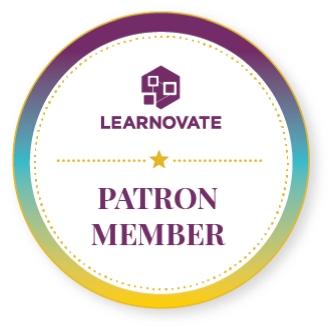The role of lifelong learning within the Higher Education sector is more pivotal than ever. For education to maintain relevance, it must transform alongside the dynamic needs of the knowledge economy, and this transformation hinges on the foundational concept of lifelong learning.
Understanding and integrating this imperativeness in the academic institutions is not just about adapting to change; it is about genuinely reaping the innovative harvest that continual learning can provide. For educators, administrators, and scholars, the pursuit of knowledge is not merely a professional obligation but a personal undertaking to stay at the cutting edge of development.
Defining Lifelong Learning in Academia
Lifelong learning embraces the pursuit of continual personal, professional, and intellectual development. In the context of higher education, adopting this approach is crucial for maintaining academic excellence, fostering innovation, and fulfilling the evolving educational expectations of students.
Collaborative institutional learning strategies that encompass the philosophy of lifelong learning are based on the principle that learning is not restricted to a certain phase of life, but rather a sustained, ongoing process. It involves staying up-to-date with developments in one’s chosen field, but also acquiring new skills and knowledge that can lead to multidimensional growth.
The Role of Educators
Lifelong learning requires educators to be exceptionally flexible and open to change. They must not only perpetually improve their subject-matter expertise but also evolve in their instructional methodologies. Continuous professional development keeps educators’ knowledge fresh and their teaching dynamic, enhancing the overall student experience.
The Role of Institutions
Higher education institutions must provide access to resources and frameworks that support the pursuit of ongoing learning. This includes not only robust curricula but also environments that foster research, innovation, and the freedom to explore new ideas.
The Principles of Lifelong Learning
There are certain foundational principles that underpin the successful integration of lifelong learning in higher education:
- Learner-Centered Approaches: Learning experiences should be tailored to the individual’s needs, allowing them to drive their own educational path.
- Technological Integration: E-learning, virtual classrooms, and educational technology play an integral role in providing access to learning opportunities outside traditional settings.
- Partnerships and Diversity: Collaborating with diverse educational partners allows for a richer and more varied educational experience.
- Practical Application: Focusing on the application of knowledge ensures that learning is meaningful and transferable to real-world contexts.
Pedagogical Innovation
To effectively implement lifelong learning, institutions must foster pedagogical innovation, embracing new teaching and learning methods that promote agility and adaptability.
Assessment and Recognition
Institutional frameworks for recognizing prior learning and experience – such as competency-based education models or micro-credentialing – are vital in acknowledging and valuing the skills and knowledge obtained through lifelong learning.
The Key Areas of Impact
Lifelong learning has a multifaceted impact on higher education, influencing various key areas profoundly:
- Curriculum Development: An evolving curriculum that integrates the latest knowledge and skills, as well as a broad-based liberal education, is central to lifelong learning.
- Student Engagement and Success: Actively engaged students, who recognize the value of continuing their education, are more likely to succeed academically and professionally.
- Institutional Reputation: Institutions that actively promote lifelong learning foster a reputation for innovation and academic excellence.
- Community and Workforce Development: Lifelong learning initiatives contribute to developing a skilled workforce that can drive economic and social development.
Global Perspective
The importance of lifelong learning is further underscored by the increasingly global nature of higher education and workforce. Institutions need to prepare their students for global citizenship by offering opportunities that engage with diverse perspectives and global challenges.
Adapting to Technological Shocks
Technological disruptions continually reshape industries and occupations, making lifelong learning the most viable strategy for individuals and institutions to remain resilient and responsive to change.
Conclusion: A Continual Journey
Lifelong learning in higher education is not just a trend or goal; it’s a commitment to a continual educational journey. The dynamic nature of the knowledge economy necessitates that scholars and educators alike cultivate a mindset of ongoing inquiry and learning.
Institutions that successfully embed lifelong learning principles in their educational frameworks not only prepare their students for a world of constant change but also contribute to the intellectual and innovative capital of society. As academics, the charge is clear – to teach, learn, and lead by example in the pursuit of lifelong learning.
